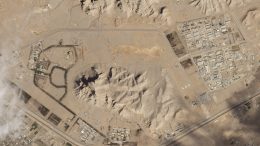Camping is a popular outdoor activity that attracts many enthusiasts year after year. Some people camp every month while others only have time for one great excursion into the wilderness each year. This year, millions of camping trips will take place across the country.
Preparation is key to a successful camping trip. Whether campers plan to spend one night or several in the great outdoors, there are certain tips to follow to ensure your trip is as fun and safe as possible.
Gear
In order to be comfortable, stock up on camping gear. Tents, sleeping bags and other gear need not be the most expensive. Quality, moderately priced gear works well, too. With care and maintenance, camping gear can last for several years.
A tent will be your first line of defense against the outdoors. Although plenty of people prefer to sleep out under the stars, a tent is a place to avoid inclement weather and insects and have a little privacy. Your tent need not be too big, unless you plan to share it with many of your fellow campers. Since you will be spending the majority of your time outdoors, don’t feel pressured to buy the tent equivalent of a three-room suite. A good tent should be sturdy, weather-resistant and large enough to fit the people who will be sleeping in it during your trip.
Invest in a pad to place on the floor of the tent to shield you from the hard ground. The pad will make sleeping more comfortable. If you will be sleeping during warm-weather months, you don’t have to worry about an expensive sleeping bag. An average-weight one will be just fine. Don’t forget to pack a pillow.
A cooler filled with foods and drinks will tide you over for the trip. If you plan to cook, you will need to bring the ingredients for meals. Otherwise sandwiches should suffice. Some campgrounds have grills and picnic tables available. Otherwise, you can cook hot dogs right over your open campfire.
Where to camp
Campsites may be public or private. Public campgrounds are generally funded by tax dollars and maintained by parks departments or government offices. They may be free to enter or charge a nominal fee for use. Because of the low cost involved, they may be quite popular and crowded during peak camping season.
Private campsites are run by private companies or individuals and may also feature RV hookups. In many instances, private campsites sell memberships to interested parties, which gives access to certain private areas. They may have more amenities than public campsites. Private sites also may employ security personnel and maintenance crews to ensure the areas are clean and safe and to enforce campground rules. This may not be the case at public campsites, where conditions may be inconsistent from site to site.
An online search of both public and private campsites nearby can help you determine which option best suits you. Consider national parks, national forests and even the Army Corps of Engineers, which manages many recreational areas.
Avoid critters
Animals and insects are part of the camping experience. While they are unavoidable, there are some measures you can take to reduce the propensity for bothersome bug bites or clever critters raiding the cooler.
Keeping a clean campsite is perhaps the most effective animal and insect deterrent. Ants and animals are attracted to food bits scattered around the site, so be sure to gather trash and dispose of it properly each day. Try not to store food on the ground. Whenever possible, keep food locked away in an airtight cooler or other container. Dry foods can be stored under lock and key in the car. Racoons, squirrels, birds, and skunks all have been known to patrol campgrounds for an easy meal. Also, you don’t want to lure in larger predators, such as bears or wild cats.
To avoid insects, steer clear of perfumed products. Keep lights dim at night, as bright lights attract mosquitoes and other biting bugs. Use appropriate insect repellents to help further repel bugs.
Closer isn’t always better
Many new campers make the mistake of choosing campsites that are in close proximity to bathrooms and clubhouses and other reminders of civilization. But these areas tend to feature heavy foot and car traffic and can make for a noisy experience. To avoid the lights, sounds and bustle of too many people, stick with campsites farther off the beaten path. You may need to walk a little farther, but you will likely enjoy a more peaceful camping experience.
Plan for the wetness
Even if it doesn’t rain, dew is an inevitable part of camping outdoors. Warm weather with high humidity can make dew even more plentiful. Use a shower curtain or another plastic impenetrable liner beneath your tent to reduce wetness and chilliness while you sleep. Be sure to bring in clothes and remove items from your clotheslines before you retire for the night if you don’t want them damp the next morning. Use tarps to cover anything that should not get wet. Be sure to pack plenty of dry socks and changes of clothes and store them in zipper-top bags in the event clothing does get wet. Wet clothes can be uncomfortable and increase your risk for hypothermia.
Carry in and carry out
Part of the magic of camping is being able to enjoy nature and experience the great outdoors. It is crucial to protect natural landscapes as much as possible and to exercise caution around plant life. In addition, be mindful of animal habitats. What you bring to the campsite, including trash, should be removed when you are done. Do not leave a mess behind.
Camping can be an enjoyable and inexpensive vacation option. Learning the ropes and heeding some advice can make camping an enjoyable getaway year after year.
Metro Creative Graphics Inc.










































